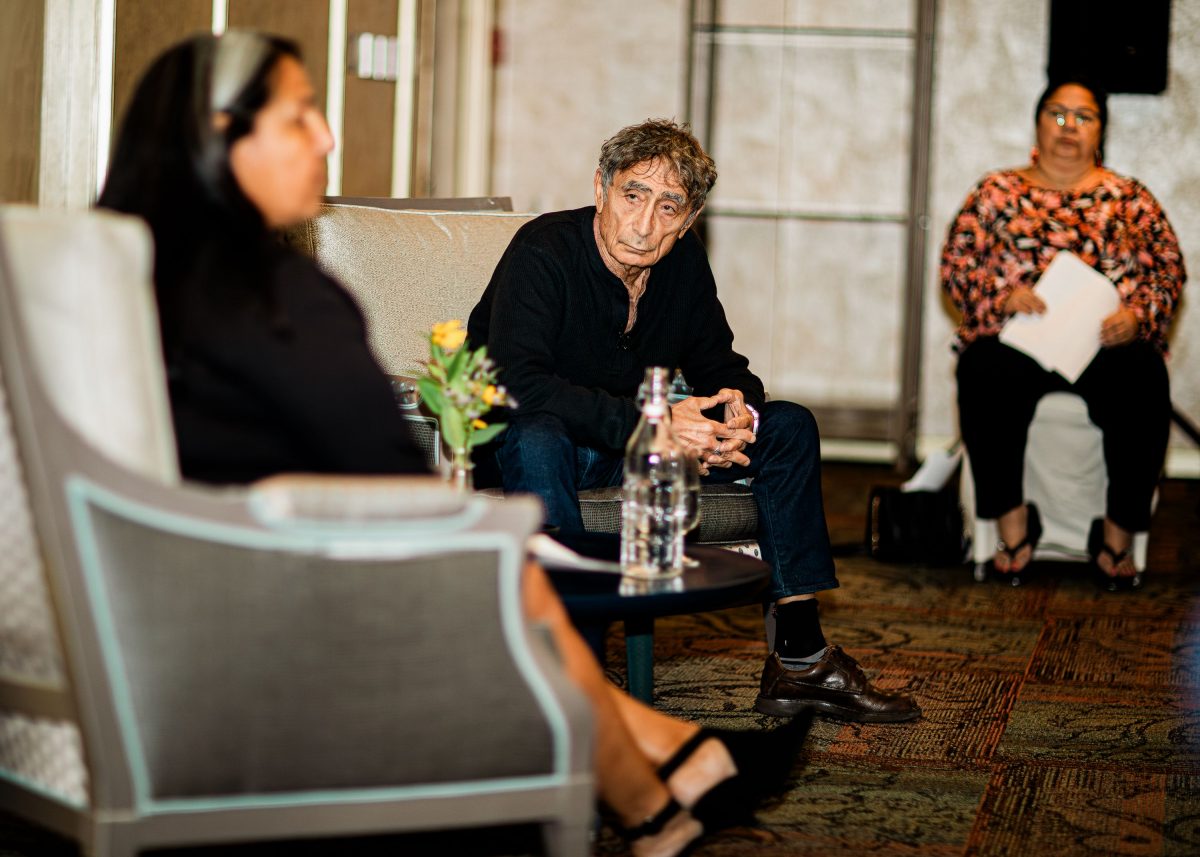
Retired physician and renowned trauma expert, Gabor Maté in conversation with NCTR's Stephanie Scott on the truth about trauma.
Healing trauma with truth
Acclaimed trauma and addictions expert Dr. Gabor Maté spoke out in support of a permanent UM home for the National Centre for Truth and Reconciliation (NCTR) during a recent visit to Winnipeg.
Maté was joined by more than 1,000 attendees at the NCTR’s National Gathering for residential school Survivors and regional health support and cultural workers in August, where he delivered the keynote address. He also sat down with the centre’s executive director, Stephanie Scott.
“There’s still such a denial of truth. We need these institutions whose essence is to keep the truth alive. I can’t think of anything more important,” said Maté. “Everything that keeps the light of truth burning should be supported.”
Fundraising to secure the final $40 million needed for this permanent home, to be built on the Fort Garry Campus, is underway. Maté, a Holocaust Survivor and physician who spent more than a decade treating patients with drug addictions in downtown Vancouver’s East Side, cited a poll done in Canada only three years ago that showed 70 per cent of Canadians know little or nothing about residential schools.
“That alone should be a red flag that we need to wake up and educate ourselves because you can’t move forward until you deal with the past,” he said.
“Truth is a concept that everybody relates to. Everybody wants the truth. Everybody is upset when they’re not told the truth. Well, what does it feel like for a whole people when the truth is denied or not recognized? Anybody, whether you’re black or Jewish or Indigenous—of any nationality—when your truth is denied, you feel outrage. And you suffer. And would there be racism if people knew the truth?”
Maté insists addiction is a direct response to pain and suffering, not a disease or something one inherits. Addiction—and the homelessness that can follow—is a manifestation of trauma, an unhealed wound. It is never the primary problem; it is an attempt to solve a problem. He shares his mantra: “Don’t ask ‘why the addiction?’ ask ‘why the pain?’” It’s no accident there is a significant, disproportionate plague of addiction in Indigenous communities, he notes.
“They happened to be the ones who’ve suffered most in this country,” says Maté. “The research and the gathering of information [are] just essential for healing. And what’s really essential is that people tell their stories. And that those stories be recorded and preserved for future generations. So, there’s so much work to be done. It can’t just be done on the fly, it can’t just be done with people getting together temporarily here or there and then separating. Physical institutions that will embody this whole effort [are] very important and I’m just very glad it’s being done at a good university right here in the Prairies, where so much of the…history was played out.”
You can read more about what Gabor Maté had to say to Survivors at a special gathering in UM Today The Magazine.






